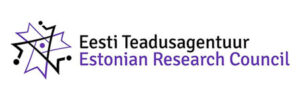
Effective participatory discourse
Experiences of participants’ engagement in the context of child protection assessment practices (EPECA, PSG305), 2019-2023
EPECA is dedicated to carrying out a research project on effective participatory discourse in the context of child protection assessment practices. The primary aim of this research is to explore the experience of engagement within the context of child protection practice by listening to participants’ voices to understand what facilitates engagement between families and child protection workers. The results of this study will help practitioners select appropriate strategies to engage families in the assessment process. Furthermore, this study will improve worker skills and organisational processes for more effective family engagement, which enables increasing the quality of service delivery and in turn contributes to strengthening the child welfare system. Financed by Estonian Research Council.
The research is divided into three studies, addressing the following research questions:
Study 1 (systematic review):
What are successful family engagement strategies internationally?
This study consists of four review articles: (1) children’s views in child protection casework in general, (2) strengths-based practice in child welfare, (3) children’s participation in child protection decision-making from children’s perspectives, (4) children’s participation in child protection decision-making from child welfare workers’ perspectives. Study 1 is completed (data collection and publishing the results).
Study 2 (interviews with workers, parents and children, including Client Engagement Scale from Yatchmenoff, 2005): What are stakeholders’ experiences and perceptions of the engagement process, including best practices that lead to successful engagement of workers and families?
Interviews with families and child protection workers are in ongoing process in several counties in Estonia; in five counties, data collection is completed, and in one county, study is currently conducted. Some of the data (e.g., data from Yatchmenoff scale) will be analysed and published in 2022; most of the data will be published in the form of a book (planned to be published in 2023).
Study 3 (online survey with child protection workers, using questionnaire from Vis et al., 2012):
What are obstacles engaging children in the assessment process?
Data collection is completed. In total, 106 child protection workers participated in the study, representing a response rate of 41.4% (256 child protection workers working in local governments in Estonia during the time of the study). Survey included two parts: quantitative (Vis et al., 2012 questionnaire) and qualitative (one open question: ‘Please describe, what are your thoughts on child participation in child protection cases?’). Study 3 is completed (data collection and publishing the results).
Published publications
Harrik, A. (2024). Ukraina lastel aitas Eestisse jõudes kohaneda rahustav loodus. Novaator, 13.02,2024. Interview with prof. Karmen Toros, read HERE. Related to additional study about Ukrainian refugee children.
Toros, K., Kozmeko, O., & Falch-Eriksen, A. (2024). ‘I just want to go home, is what I need’ – Voices of Ukrainian refugee children living in Estonia after fleeing the war. Children and Youth Services Review, 158, 107461. https://doi.org/10.1016/j.childyouth.2024.107461. Related to additional study about Ukrainian refugee children.
Falch-Eriksen, A., & Toros, K. (2024). Å uttrykke seg i barnevernet: Profesjonell praksis og barnets rett. Oslo: Scandinavian University Press, see HERE. Related to Study 1 and Study 2.
Toros, K. (2024). Rettighetsbasert profesjonell praksis: Etablering av den akademiske diskursen. In Asgeir Falch-Eriksen & Karmen Toros (Eds.), Å uttrykke seg i barnevernet: Profesjonell praksis og barnets rett (24−32). Oslo: Scandinavian University Press. Related to Study 1.
Toros, K., & Lehtme, R. (2024). Undersøkelsens rolle: Barnets medvirkning i administrative prosesser.In Asgeir Falch-Eriksen & Karmen Toros (Eds.), Å uttrykke seg i barnevernet: Profesjonell praksis og barnets rett (49−60). Oslo: Scandinavian University Press. Related to Study 2.
Toros, K. (2023). ‘The pandemic affected my life in a negative way’: The experiences of Estonian children in Child Protective Services during the Coronavirus Disease 2019 pandemic. Children & Society, 37(3), 661–673. https://doi.org/10.1111/chso.12517. Related to additional study conducted after the COVID-19 outbreak for the project EPECA.
Toros, K., Falch-Eriksen, A., & Lehtme, R. (2023). Challenges to social work professionalism during the COVID-19 pandemic: A qualitative analysis of child protective workers’ perspectives. Journal of Social Work Practice, http://doi.org/10.1080/02650533.2022.2162489. Related to additional study conducted after the COVID-19 outbreak for the project EPECA.
Toros, K. (2022). Osalus on lapse parimates huvides tehtud otsuse eeltingimus. Märka Last, 11, 18−19. download HERE Related to Study 1 and Study 2: in Estonian for Estonian practitioners.
Toros, K. (2022). Kuidas mõista lapse osalusõigust lastekaitsetöös? Raamat „Lastekaitsetöö ja lapse osalusõigus“. Sotsiaaltöö, download HERE Related to Study 1 and Study 2: in Estonian for Estonian practitioners.
Toros, K. (2022). Rights-based professional practice: Situating the academic discourse. In Asgeir Falch-Eriksen & Karmen Toros (Eds.), Professional Practice in Child Protection and the Child’s Right to Participate (pp. 17−30). New York: Routledge. An open access book, download HERE Related to Study 1.
Toros, K., & Lehtme, R. (2022). The case of assessment: Child participation during administrative proceedings. In Asgeir Falch-Eriksen & Karmen Toros (Eds.), Professional Practice in Child Protection and the Child’s Right to Participate (pp. 47−62). New York: Routledge. An open access book, download HERE Related to Study 2.
Falch-Eriksen, A., & Toros, K. (2022). Lastekaitsetöö ja lapse osalusõigus. Tallinna Ülikool: CIRIC. An open access book in Estonian, download HERE Related to Studies 1 and 2.
Toros, K. (2022). Õigustel põhinev lastekaitsetöö. Kogumikus A. Falch-Eriksen, K. Toros (Toim.), Lastekaitsetöö ja lapse osalusõigus (20−33). Tallinn: CIRIC. An open access book in Estonian, download HERE Related to Study 1.
Toros, K. & Lehtme, R. (2022). Hindamine lastekaitse juhtumimenetluses: lapse osaluse tagamine. Kogumikus A. Falch-Eriksen, K. Toros (Toim.), Lastekaitsetöö ja lapse osalusõigus (49−65). Tallinn: CIRIC. An open access book in Estonian, download HERE Related to Study 2.
Toros, K., & Sindi, I. (2022). Storytelling: A method for enabling a child to become an active participant in Child Protection Assessment in the example of substitute care. Journal of Family Social Work, https://doi.org/10.1177/1049731520984844. Related to the project’s recommendations to local governments for more effective family engagement.
Toros, K., & Falch-Eriken, A. (2022). The voices of parents in Child Protective Services: A qualitative analysis of families’ struggles with COVID-19. Developmental Child Welfare, 4(2), 97−113. https://doi.org/10.1177/25161032221094045. Related to additional study conducted after the COVID-19 outbreak for the project EPECA.
Toros, K., Falch-Eriksen, A., & Wu, J. (2021). Listening to children’s voices in child protection practices: Child protection workers’ perspectives on child participation. In: R. Baikady, S.M. Sajid, J. Przeperski, V. Nadesan, M. Rezaul Islam, G. Jianguo (Ed.). The Palgrave Handbook of Global Social Problems. Palgrave Macmillan [in press]. Related to Study 3.
Toros, K., & Falch-Eriksen, A. (2021). Strengths-based practice in child welfare: A systematic literature review. Journal of Child and Family Studies, 30, 1586–1598. https://doi.org/10.1007/s10826-021-01947-x. Related to Study 1.
Falch-Eriksen, A., Toros, K., Sindi, I., & Lehtme, R. (2021). Children expressing their views in child protection casework: Current research and their rights going forward. Child & Family Social Work, 26(3), 485–497. https://doi.org/10.1111/cfs.12831. Related to Study 1.
Toros, K. (2021). A systematic review of children’s participation in child protection decision-making: Tokenistic presence or not? Children & Society, 35(3), 395–411. https://doi.org/10.1111/chso.12418. Related to Study 1.
Toros, K. (2021). Children’s participation in decision-making from child Welfare workers’ perspectives: A systematic review. Research on Social Work Practice, 31(4), 367–374. https://doi.org/10.1177/1049731520984844. Related to Study 1.
Toros, K., & Falch-Eriksen, A. (2021). “I do not want to cause additional pain …” – Child protection workers’ perspectives on child participation in child protection practice. Journal of Family Social Work, 24(1), 43–59. https://doi.org/10.1080/10522158.2020.1833396. Related to Study 3.
Kallas, K., Toros, K., & Falch-Eriksen, A. (2021). Building a collaborative relationship with an involuntary parent in child protective services. Social Work/Maatskaplike Werk, 58(2), 158−173 . Related to the project’s recommendations to local governments for more effective family engagement.
Toros, K., Tart, K., & Falch-Eriksen, A. (2021). Collaboration of child protective services and early childhood educators – Enhancing well-being of children in need. Early Childhood Educational Journal, 49, 995–1996. https://doi.org/10.1007/s10643-020-01149-y. Related to Study 2 and the project’s recommendations to local governments for more effective collaboration in promoting child well-being.
Toros, K., & Falch-Eriksen, A. (2020). A child’s right to protection during the COVID-19 crisis: An exploratory study of the Child Protective Services in Estonia. Children and Youth Services Review, 119, 105568. https://doi.org/10.1016/j.childyouth.2020.105568. Related to additional study conducted after the COVID-19 outbreak for the project EPECA.

